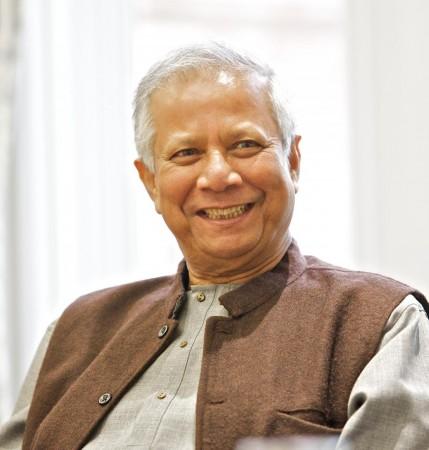
Since being awarded the Nobel Peace Prize in 2006, microfinance and its architect, Professor Muhammad Yunus, have gained widespread recognition, especially among the impoverished populations of Bangladesh, India, and various African and American nations. Dubbed the "banker to the poor," Yunus's microloan strategy has been instrumental in preventing rural unrest in many impoverished regions globally.
Prof. Yunus's approach represents a significant shift in economic theory and practice. Departing from the profit-centric models of corporate firms, the Grameen Bank, established in 1983, has become a beacon of hope for the poor and his transition from an academic setting to practical banking underscored a commitment to creating an inclusive economy, to which he would be credited for ever.
Once, Yunus highlighted the inadequacy of traditional economic theories amidst the famine in Bangladesh in the mid-1970s, which prompted him to take direct action to alleviate poverty with his microcredit model. By focusing on empowering women through microfinance, Yunus's model not only aimed at economic development but also sought to empower women and foster self-sufficiency among the poor.
Despite the initial success of the Grameen model, Yunus recognized its limitations decades later, especially in light of distressing instances like the suicides of indebted women in South India. This led him to adapt his model, incorporating principles of social entrepreneurship to create a more sustainable development framework.
Political Controversy and Legal Battles
Despite his contributions, Yunus has faced significant political opposition in Bangladesh. Former Prime Minister Sheikh Hasina accused him of exploiting the poor with high-interest rates. Yunus's attempt to form a political party in 2007 was met with resistance, leading him to withdraw from political ventures.
He has consistently denied any involvement in politics, despite facing numerous legal challenges, including a recent six-month prison sentence for alleged labor law violations, which he denies.
"I am not in the political field, there is no evidence that I am involved in politics," Yunus said when he was pursued by a series of court cases. Nonethless, he warned then that Bangladesh was becoming a "self-destructing civilization," reflecting his concerns about the country's political and economic trajectory.

Currently, receiving medical treatment in France, Yunus plans to return home to assume the role of interim leader, aiming to restore normalcy and address youth unemployment. His endorsement of the student-led protests that ousted Hasina signifies his continued influence and positioned him to lead the country, a daunting task for an economist.
As Prof. Yunus remains positive to lead the interim government, he faces the challenge of developing a new model of political governance and economic development that extends beyond his Grameen framework. His ability to adapt and innovate will be crucial in establishing a trustworthy political and economic system in Bangladesh. Time will tell whether he would come out successfully as another Manmohan Singh in South Asia.















